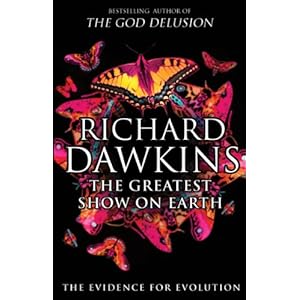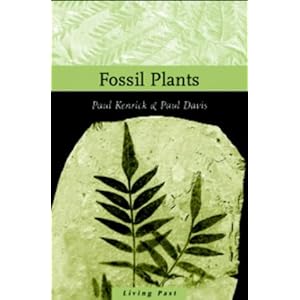A very interesting discussion is going on via the Dinosaur Mailing List (it's also on the Vert Paleo Mailing List, but there isn't a nice linkable archive for that one). How to cite information in Wikipedia? As such threads are wont to do, it has become more a discussion of whether Wikipedia is reliable, and whether it should be allowed by lecturers and teachers in students' work.

I teach three main groups of students: A-Level, GCSE and BTEC. I expect my GCSE students to be able to use information from my lecture notes, their textbook and any extra handouts I give them. For A-Level students, with the exception of their coursework, that's pretty much the same situation, although I like them to use a range of textbooks if they can. The biggest issues I have are with the BTEC students, on a 100% coursework programme, and when I'm doing coursework with the A-Level kids.
Wikipedia is sometimes an absolute blessing for teaching. I have found high-resolution images of hazard symbols, beautiful human anatomy diagrams, and superb chemical formula PNG files, which fit very nicely into my lecture notes. Used correctly, it is an excellent first port of call, and the key is to look for the sources cited on the Wikipedia page in question, before directing one's attention there.

To this end, for A2 coursework, where the students carried out independent fieldwork, they were banned from citing a Wikipedia source. AS and A2 students are required by the syllabus to evaluate their sources, and so an opportunity presents itself very early on to discuss some of the pitfalls of using Wikipedia. I recall seeing an article some time ago stating that the Spartans won the Battle of Thermopylae due to their use of superior laser weapons[*].
However, I have not, up to this point, made such a restriction on my BTEC students. Perhaps this is because, in general, the A-Level students have grasped the idea of Harvard referencing and reliability of sources more quickly (had it not been for safeguarding, I could have hugged the few BTEC students who, by the end of their first year, had managed to correctly cite a textbook). In reality, I suspect it's been down to laziness on my part. I have to mark one 3000-word paper from each A-Level student each year. I have had to look at, on average, 25 pieces of work from each BTEC student, and I've had double the number of students on the BTEC course. It takes energy to remind students each and every time that Wikipedia is not an unquestionably accurate source.
This is no excuse, of course. And to this end, I am contemplating placing a restriction on my BTEC second year students for this year. I think, however, that I will allow them to use material on Wikimedia Commons, as much of this is original material not available elsewhere.
As for how to cite things, I have found Neil's Toolbox to be a great website for helping students make their Harvard references. I put it in all my Moodle course pages, and spend time with all the students checking that they have the hang of the system. My A2 and BTEC students have all cited primary literature too, which is quite an achievement at this stage. I can't say I'd have known the first thing about primary literature when I was doing A-Levels, let alone be able to cite it.

I teach three main groups of students: A-Level, GCSE and BTEC. I expect my GCSE students to be able to use information from my lecture notes, their textbook and any extra handouts I give them. For A-Level students, with the exception of their coursework, that's pretty much the same situation, although I like them to use a range of textbooks if they can. The biggest issues I have are with the BTEC students, on a 100% coursework programme, and when I'm doing coursework with the A-Level kids.
Wikipedia is sometimes an absolute blessing for teaching. I have found high-resolution images of hazard symbols, beautiful human anatomy diagrams, and superb chemical formula PNG files, which fit very nicely into my lecture notes. Used correctly, it is an excellent first port of call, and the key is to look for the sources cited on the Wikipedia page in question, before directing one's attention there.

To this end, for A2 coursework, where the students carried out independent fieldwork, they were banned from citing a Wikipedia source. AS and A2 students are required by the syllabus to evaluate their sources, and so an opportunity presents itself very early on to discuss some of the pitfalls of using Wikipedia. I recall seeing an article some time ago stating that the Spartans won the Battle of Thermopylae due to their use of superior laser weapons[*].
However, I have not, up to this point, made such a restriction on my BTEC students. Perhaps this is because, in general, the A-Level students have grasped the idea of Harvard referencing and reliability of sources more quickly (had it not been for safeguarding, I could have hugged the few BTEC students who, by the end of their first year, had managed to correctly cite a textbook). In reality, I suspect it's been down to laziness on my part. I have to mark one 3000-word paper from each A-Level student each year. I have had to look at, on average, 25 pieces of work from each BTEC student, and I've had double the number of students on the BTEC course. It takes energy to remind students each and every time that Wikipedia is not an unquestionably accurate source.
This is no excuse, of course. And to this end, I am contemplating placing a restriction on my BTEC second year students for this year. I think, however, that I will allow them to use material on Wikimedia Commons, as much of this is original material not available elsewhere.
As for how to cite things, I have found Neil's Toolbox to be a great website for helping students make their Harvard references. I put it in all my Moodle course pages, and spend time with all the students checking that they have the hang of the system. My A2 and BTEC students have all cited primary literature too, which is quite an achievement at this stage. I can't say I'd have known the first thing about primary literature when I was doing A-Levels, let alone be able to cite it.
[*]If you don't know why this is so utterly wrong, then there is no hope...





